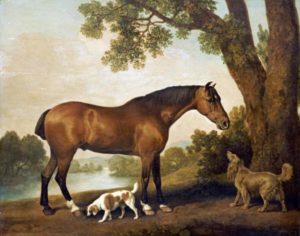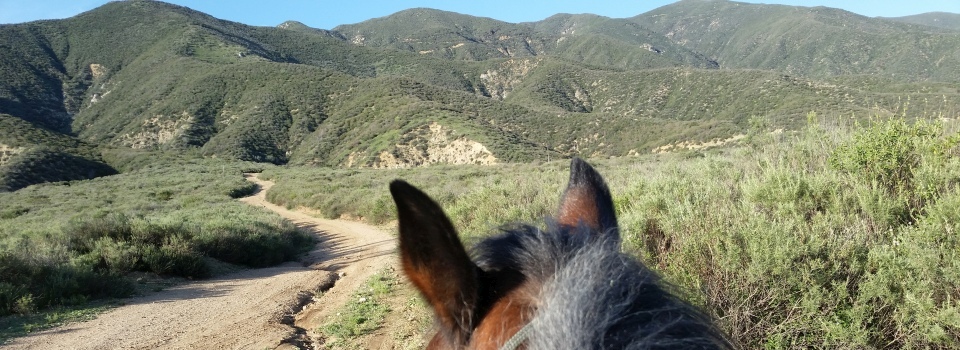One of the things that my dog agility instructor often says is “Reward your dog,” most often when the dog has done what the handler asked for, and not necessarily what the handler wanted.
There are many ways in which dog agility and riding are different. Dogs are not horses, in agility you’re expected to not be in constant contact with your dog, and serious injury is less common in agility.
But there are some striking similarities. In both sports, novices overuse voice and hands to direct the animal, while experts use torso and legs. Both are often faster-paced than novices appreciate. Both require muscle memory. And in both sports, an activity that should ultimately be rewarding for the dog or horse can initially be scary.

Any time the dog or horse is doing what you ask, that’s praiseworthy, even if it wasn’t what you intended. The reward is earned, and you should give it. Most dogs like food treats, or tug toys, or items they can chase, or that combine two or three of these attributes. None of these work well for a ridden horse—even food treats can only be given at the halt, and the horse reaching for them distracts from balance and straightness and turns the halt into a stop. But the one thing almost every dog and horse (and human student) wants is reassurance—“You’re doing good!”
One way that horses bond with each other is mutual grooming, and a common grooming destination is right in front of the rider’s hand: the area along side and in front of the withers. Because you’re the leader, when you scratch your horse there, you’re telling him “I’ve got your back,” and when you’re riding, you literally do.
Relaxing a rein to scratch is sometimes counterproductive when you’re being precise with the aids, and that’s where the voice comes in. Horses reassure each other by voice all the time, and while we can’t duplicate the details of what they’re saying to each other, we can reassure by voice in a way they understand. Reassuring vocalizations generally drop in pitch and volume: “GOOD boy” (this is different from dogs, where rising pitch can elicit excitement).
You might be thinking that reward is important for training, but is superfluous for lesson horses and especially schoolmasters, because they already know what to do. But they need rewards more than ever, not because you’re teaching them what to do, rather because they’re teaching you, and that’s how you let them know you appreciate the lesson. I’m not very good at that, because I often feel inept. But when your teacher is a horse, that’s really the only way you can show gratitude.
So now you have the tools. Reward your horse. Good boy!
